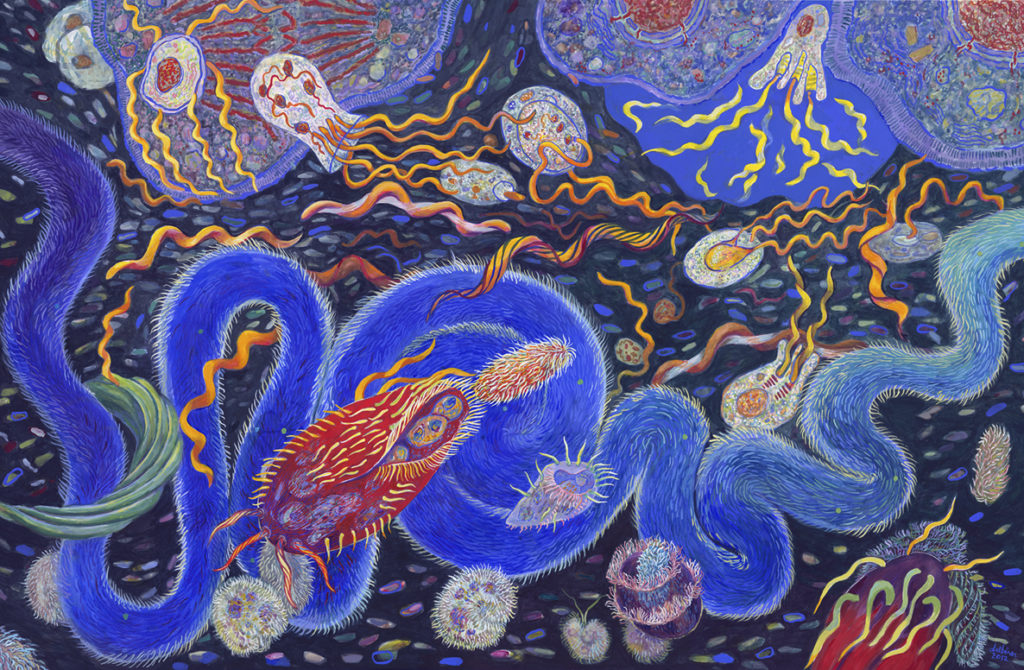
We are our virus (Margulis 1998)
We are persuaded that viruses do not belong in any of the five kingdoms. They are not alive since outside living cells they do nothing, ever. Viruses require the metabolism of the live cell because they lack the requisites to generate their own. Metabolism, the incessant chemistry of self-maintenance, is an essential feature of life. Viruses lack this. Through ceaseless metabolism, through chemical and energy flow, life continuously produces, repairs, and perpetuates itself. Only cells, and organisms composed of cells, metabolize. Whether capable of invading plants, animals, fungi, or protoctists, any virus outside the membrane of a live cell is inert. Viruses nevertheless are important to the story of life on Earth. Since they depend upon the metabolism of others, the first viruses most probably evolved from bacteria. They probably started as irradiated portions of bacterial cells living in sunlight. Some viruses, quite complex in structure, may look, under an electron microscope, like miniature robots or hypodermic needles. How they evolved such complex forms though lacking their own metabolism is a question I do not pretend to answer. The point that bears mentioning, however, is that viruses are no more “germs” and “enemies” than are bacteria or human cells. Viruses today spread genes among bacteria and human and other cells, as they always have. Like bacterial symbionts, viruses are sources of evolutionary variation. Populations of the virus-infected organisms are honed by natural selection. […] Viruses, like all forms of cell-based life, produce problems when they overgrow their habitats. The high-profile Ebola and other viruses are blamed for wreaking havoc in certain populations. Overgrowth of resources, viral or other, tends to be due to weakening and disruption of the ecosystem. We can no more be cured of our viruses than we can be relieved of our brains’ frontal lobes: we are our viruses. (Margulis 1998:81-2)
MARGULIS, Lynn. 1998. The symbiotic planet: a new look at evolution. London: Phoenix.
[IMAGEM: Endosymbiosis: Homage to Lynn Margulis (Shoshanah Dubiner 2012)]





 LaSPA is located at the Institute of Philosophy and Human Sciences (
LaSPA is located at the Institute of Philosophy and Human Sciences (